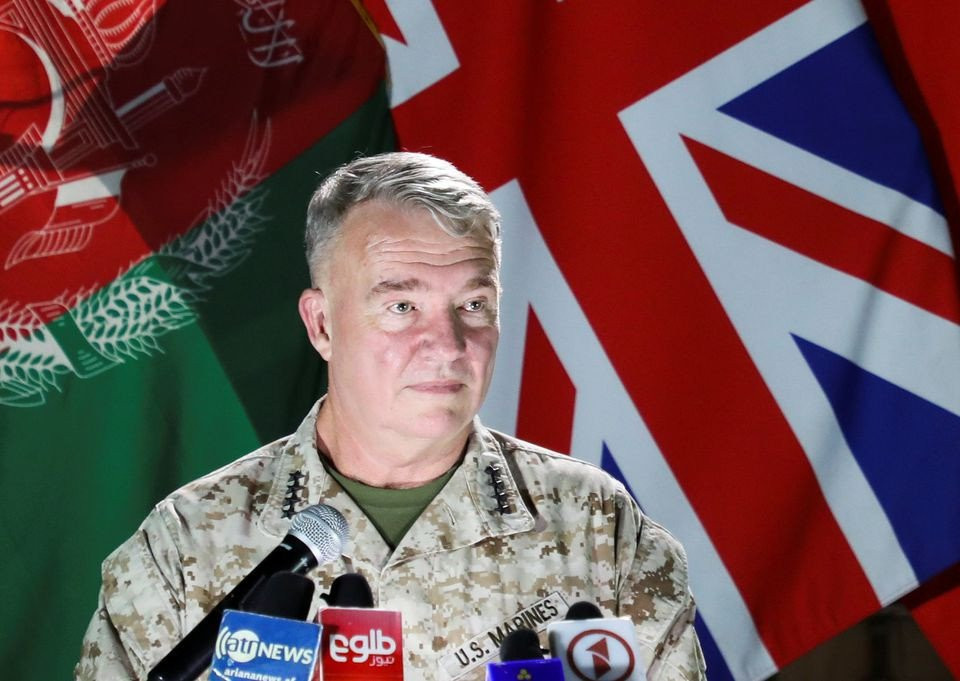third eye
ELITE MEMBER

- Joined
- Aug 24, 2008
- Messages
- 18,515
- Reaction score
- 13
- Country
- Location

How US, Pakistan failed to predict Taliban victory | The Express Tribune
Islamabad couldn't foresee dangers of the militant’s return to power, ensuing threats to its security
 tribune.com.pk
tribune.com.pk
ISLAMABAD:
In February 2021, the top US general was on a visit to Pakistan. General Frank McKenzie, the Centcom chief, was visiting just months before the withdrawal of the US-led foreign forces as part of the Doha deal signed between the Trump administration and the Afghan Taliban.
At the GHQ, his meeting with then army chief General Qamar Javed Bajwa focused on Afghanistan particularly the post-US withdrawal scenario.
The US general was keen to have Pakistan's assessment on one key question: How long would it take for the Afghan Taliban to take control of Kabul after the US withdrawal?
Pakistan's assessment mattered the most, both because of its close proximity to Afghanistan and its historic linkages with the Taliban.
Gen Bajwa, as per the assessment of Pakistan's security agencies, had informed Gen Mackenzie that the Afghan Taliban might make inroads capturing other parts of the country but taking control of Kabul wouldn't be a cakewalk.
These details are available with The Express Tribune based on some background interactions with relevant people as August 15 marks the second anniversary of the fall of Kabul.
According to the Pakistani army chief, the Afghan Taliban forces would be met with stiff resistance from the Afghan National Army (ANA) when they would try to capture Kabul.
Gen Bajwa believed that it could take a year or more for the Afghan Taliban to regain power in Kabul after the US withdrawal.
He told the American general that during this period, the international community would have sufficient time to persuade all groups to agree on an inclusive government.
When President Biden finally announced the withdrawal date, the US intelligence community too came with their own assessment.
Initially, the US intelligence claimed that it could take 9 months for the Afghan Taliban to take control of Kabul.
That assessment was later revised as the US security agencies predicted the fall of Kabul within three months of the US withdrawal.
The revised intelligence assessment was based on the rapid capitulation of provinces after provinces to the Afghan Taliban as the US-led foreign forces began their withdrawal.
However, even as the last batches of US forces were preparing to leave the war-torn country, the Afghan Taliban were at the gates of Kabul and the ANA had vanished.
The embattled President Ashraf Ghani flew out of the country in a hurry, leaving the Afghan Taliban to take control of Kabul without shedding any blood on the streets of the Afghan capital.
The speed with which Kabul fell to the Afghan Taliban exposed the faulty intelligence of both the US and Pakistani intelligence communities.
It was not just the Kabul fall where Pakistan's assessment went wrong. Islamabad couldn't foresee the dangers of the Afghan Taliban’s return to power and the ensuing threats to its security.
Pakistan at the time of Taliban’s victory thought it would help the country.
The first and foremost expectation of Pakistan was that the Afghan Taliban would deal with the banned Tehreek-e-Taliban Pakistan (TTP). Two years on, the number of cross border attacks by the TTP has been on the rise.
The Afghan Taliban have refused to take action against the TTP, something that compelled Pakistani officials now to admit that the TTP and the Afghan Taliban are "ideological cousins''.
The TTP problem has threatened to unravel the relationship between Pakistan and the Afghan Taliban.








